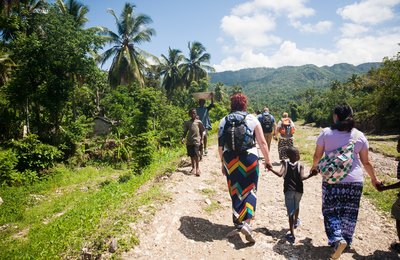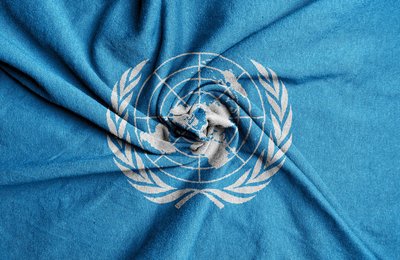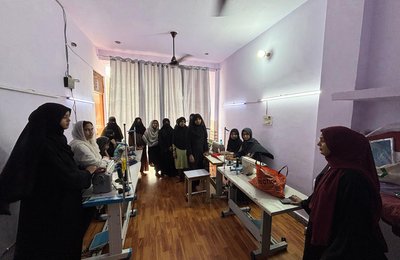If the resilience of the self-organising capacity of a society determines the extent to which it can withstand pressures and shocks that risk a (re)lapse into violent conflict, then peacebuilding should be about safeguarding, stimulating, facilitating and creating the space for societies to develop resilient capacities for self-organisation.
Seen in this context, peacebuilding can be a very delicate and self-contradictory process fraught with built-in tensions. There is an inherent tension in the act of promoting a process of self-organisation from the outside. Too much external interference will undermine self-organisation.
From a complexity theory perspective one can say that every external intervention removes feedback from the system that would otherwise have contributed to self-organization. The intervention removes the need for the local social institution to react. If there was no external intervention then the problem will have triggered some local response. Every external intervention thus deprives the local system from an opportunity to learn how to deal with such problems itself.
Most international peacebuilding interventions, large and small, make the mistake of interfering so much that they ended-up undermining the ability of the local system to self-organise. External peacebuilders impose neoliberal political and judicial norms and model institutions according to their own ideal types. In the process they deny local societies the room to develop their own institutions which are emergent from their own history, culture and context.
For peace consolidation to be self-sustainable it has to be the result of a home-grown, bottom-up and context-specific process. External peacebuilders fail to recognise the degree to which their own norms and institutions are the product of their own history, culture and context. Consequently, they underestimate the challenge of transferring these norms and institutions to other cultures and contexts.
They also fail to recall the irregular progress, setbacks and challenges of the state formation processes in their own history. Consequently they are unrealistic about the time-frames and incremental progress involved. They set end-states and measure progress against ideal-type indicators that end-up reinforcing perceptions of fragility.
Peacebuilding is desperately in need of more realistic planning, more frankness about the uncertainties and risks involved, and more awareness about the incremental progress, and occasional setbacks, societies are likely to experience in their transitions from fragility to resilience.
Instead of trying to replicate institutions that mirror their own, international peacebuilders will benefit greatly from studying their own history, so that they can improve their understanding of the evolution their own institutions underwent to end-up playing the roles they perform in their societal context today. They should study the various stages these institutions went through before they took on their current roles, the degree to which their development was linked to the simultaneous development of related institutions, and ask themselves if their institutions could have the credibility to play its current role in their society without that particular history.
What is appropriate would depend on the context, however as a general rule of thumb I would argue that international peacebuilding interventions should provide security guarantees that regulate acceptable state behaviour in the international system, and they should stimulate, facilitate and create the space for the emergence of robust and resilient self-organised systems.
International peacebuilding interventions should not interfere with local social institutions with the goal of engineering specific outcomes, such as trying to produce a neoliberal state. Trying to control the outcome produce the opposite of what peacebuilding aims to achieve; it removes much needed feedback, it prevents social institutions from learning, it generates ongoing dependence, and it undermines self-sustainability.
This article was also published on the Local First blog. Local First is an approach to international development that prioritises the views and leadership of people and organisations in the countries affected, over those of outsiders from the international community.








